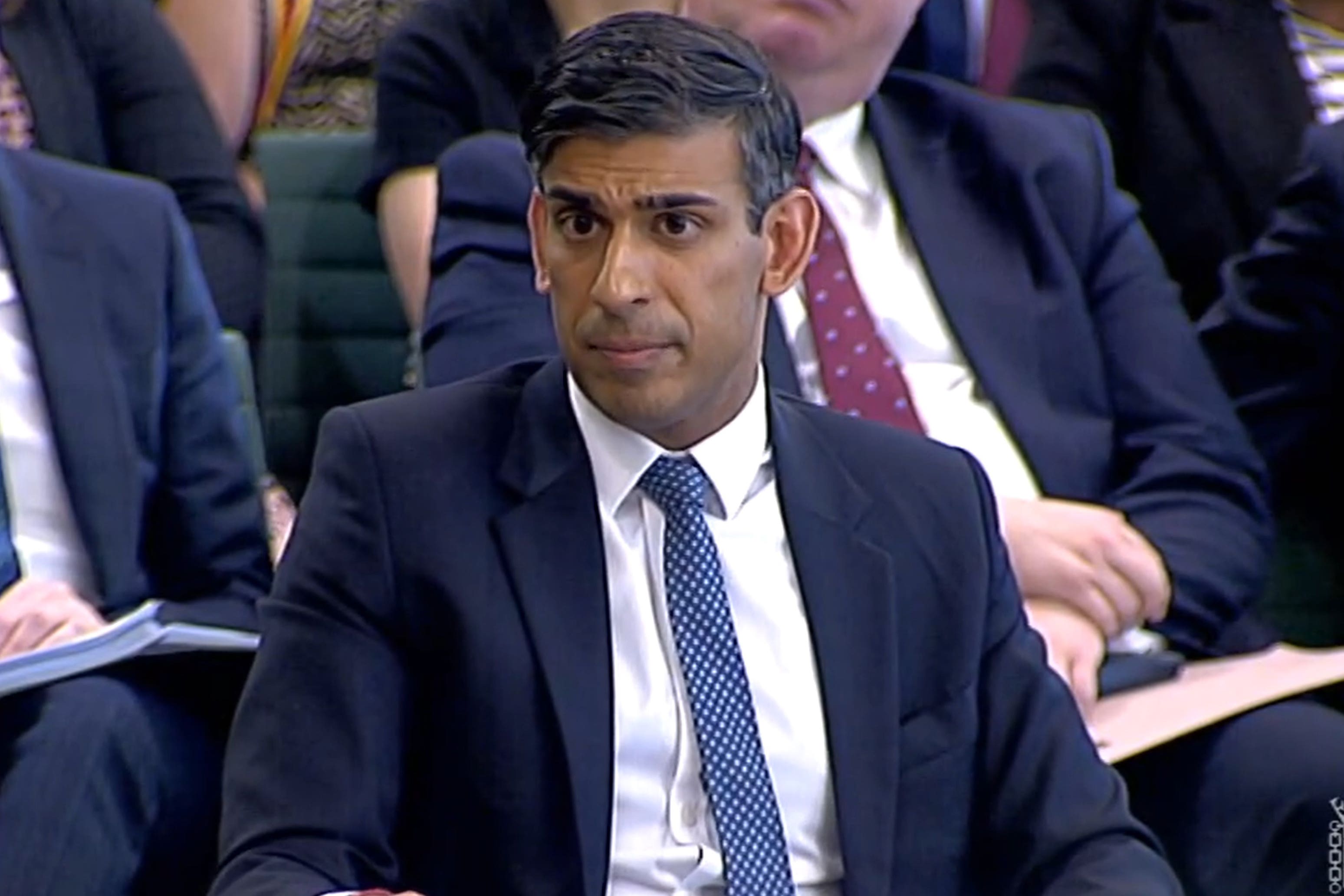Sunak says his ‘stop the boats’ pledge isn’t on hold amid Rwanda court battles
The Prime Minister was under pressure on the six-month anniversary of setting his five priorities for the nation.

Your support helps us to tell the story
From reproductive rights to climate change to Big Tech, The Independent is on the ground when the story is developing. Whether it's investigating the financials of Elon Musk's pro-Trump PAC or producing our latest documentary, 'The A Word', which shines a light on the American women fighting for reproductive rights, we know how important it is to parse out the facts from the messaging.
At such a critical moment in US history, we need reporters on the ground. Your donation allows us to keep sending journalists to speak to both sides of the story.
The Independent is trusted by Americans across the entire political spectrum. And unlike many other quality news outlets, we choose not to lock Americans out of our reporting and analysis with paywalls. We believe quality journalism should be available to everyone, paid for by those who can afford it.
Your support makes all the difference.Rishi Sunak has declined to say when he will fulfil his promise of stopping small boat crossings but denied it is on hold while the Rwanda policy is grounded by court challenges.
The Prime Minister also said on Tuesday he is “throwing everything at” tackling inflation, as he struggles to achieve the five priorities on the six-month anniversary of setting them.
Facing questions from senior MPs, Mr Sunak denied he has no plan B if the Supreme Court does not overturn the ruling blocking the forceful removal of asylum seekers to Kigali.
He told the Liaison Committee ministers will challenge the appeals court judgment “confidently and vigorously”.
Home Affairs chairwoman Dame Diana Johnson asked: “So you’re betting everything on the Rwanda policy being upheld in the Supreme Court?”
Mr Sunak replied: “No, that’s not a fair characterisation of what we’re doing.”
Asked if his pledge to “stop the boats” is on hold, he said: “No, and a good example of why it’s not on hold is our deal with Albania.”
But pressed on when he will achieve it, Mr Sunak said: “The court will have to determine its own ruling and that’s outside the Government’s hands.
“But in the meantime we can get on with a range of other things.”
Mr Sunak insisted last month his plan was “starting to work” before official figures showed it was the busiest June on record for migrant crossings.
The extra 3,824 detected people arriving after crossing the Channel on small boats pushed the total so far this year to 11,434.
It’s clearly proving more persistent than people anticipated
Another of his “people’s priorities” set in January is halving the rate of inflation this year to around 5%. The latest figures have it stuck at 8.7%.
Mr Sunak told MPs: “It’s clearly proving more persistent than people anticipated.”
Asked what percentage he would put on his goal, he said: “I don’t have one for you. I’m working 100% to deliver it and we will keep doing it.
“That’s all I can do, is just keep throwing everything at it.”
In January, the Prime Minister also pledged to reduce national debt – which has reached more than 100% of economic output for the first time since 1961 as Government borrowing swells.
Growing the economy was another priority, but the economy is flatlining and the Bank of England is still hiking interest rates, risking the chances of a recession.
When Mr Sunak pledged to cut NHS waiting lists, 7.2 million people in England were waiting for routine hospital treatment. In April’s estimates there were 7.4 million.
Visiting a hospital in London on Tuesday, he blamed striking NHS staff for making it “more challenging to bring down waiting lists”.
“I think everyone can see the economic context that we’re in and the necessity for the Government to make responsible decisions in that context, to bring down inflation,” he told broadcasters.